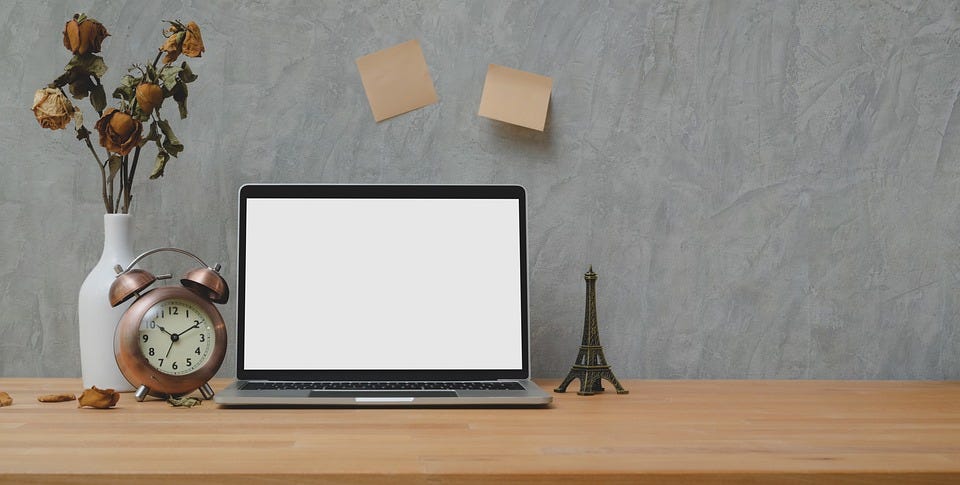Minimalism
In which we focus on less to be more
This is Sparta!
I’ve never been someone with the need to collect a lot of ‘stuff’. (Except books.) My teenage room was not plastered with posters; my current apartment is a place I prefer to keep clean and ‘no frills’.
When people first see where I live, ‘Spartan’ is the most used adjective. I don’t mind it; it’s true. As someone who leans toward the more introverted side of the personality spectrum, I derive more satisfaction from things on the inside anyway - it’s how my brain works. Don’t get me wrong. Of course, I value a certain level of comfort. But I would rather invest in a few high-quality items than in a bunch of stuff I don’t need and would have to update every few months or so.
The Spartans - those Greeks we all got to know thanks to the six-pack-filled movie 300 - were notorious for living a simple and frugal lifestyle. Hence, Spartan.
But there is more to the story. Most pictures of Spartan austerity have found their way to us modern people via ancient non-Spartan sources (commentators from other Greek city-states mostly). Biased, in other words. In its heyday, Sparta was a cosmopolitan city of great wealth and the signs of luxury that inevitably seem to go with that. Here’s a brief history of Sparta that charts some of its austere and not-so-austere periods.
Perhaps, then, ‘minimalist’ is a better term for my design preferences.
A quiet revolution
Minimalism is hot right now. From Scandinavian design movements that focus on simplicity and functionality to the Marie Kondo craze, we are slowly realizing that it’s okay not to hoard as much stuff as we can get our hands on. It takes a bit of deprogramming, but we're learning that we don’t have to keep up with the Joneses all the time.
To be fair, Kondo herself does not equate her KonMari Method™ with minimalism. She writes:
Many people have equated my tidying method with minimalism, but it’s quite different. Minimalism advocates living with less; the KonMari Method™ encourages living among items you truly cherish.
To me, that sounds like a false dichotomy. If you keep only the times you truly cherish, you get rid of the rest and end up with less anyway.
Minimalism is not necessarily asceticism, even though it can be if you choose it to be.
There is - I think - also something deeper going on. As (Western) society, we’ve been seeing widening cracks in all-consuming capitalism in the last decade. Driven by the unstoppable machines of commerce, more and more stuff is rammed down our throats only to make the rich richer, while the income gap between the 1% with full pockets and the rest of us continues to grow.
Choosing minimalism as a way of saying no to some of that stuff is the minimalist’s quiet revolution.
Consumption and wellbeing
While minimalism might partly be a minimal middle finger to capitalism-induced overconsumption, that’s not all of it. I’d venture that some people are more naturally drawn to it. I’ve written before about how roughly a fifth of us are highly sensitive to sensory stimulation, and, as a consequence, more easily overstimulated. It makes sense that, if that’s the case for you, you try to build an environment that calms your brain down by minimizing ‘loud’ inputs.
AKA minimalism.
Is there anything to this? Can self-selected minimalism contribute to your wellbeing?
There is annoyingly little research on this for some reason. It does, however, seem to be the case that choosing minimalism can be a good idea for some people. This small 2020 study finds that a minimalist lifestyle confers several wellbeing benefits that can be categorized along five key themes:
Autonomy
Competence
Mental space
Awareness
Positive emotions
A 2021 systematic review supports this:
Overall, a consistent positive relationship was found between voluntary simplicity and well-being.
Keyword: voluntary. When you are pushed into minimalism (through financial hardship, for example), I doubt that your wellbeing will improve.
Digital minimalism
In recent years, however, our daily environment is more than merely physical. More and more aspects of our daily lives have a virtual flavor. We can choose to keep our living space minimalist, but our virtual living spaces might still be blaring non-stop.
Much of the software that has integrated itself into our lives is designed to be addictive and profit-driven, and it values shallow engagement over quality interactions. A minimalist’s nightmare.
Can we extend minimalist tendencies to our digital lives without giving up on all the benefits information technology can provide?
In his book Digital Minimalism, Cal Newport gives it a shot. In his words, digital minimalism is:
“A philosophy of technology use in which you focus your online time on a small number of carefully selected and optimized activities that strongly support things you value, and then happily miss out on everything else.”
This digital minimalism has three core tenets:
Clutter is costly: All the unnecessary apps, subscriptions, and devices do little more than distract you from what you actually want to do.
Optimization is important: Many technological and/or virtual tools are helpful, as long as you choose to use them intentionally.
Intentionality is satisfying: That ‘intentionally’ above should be your guiding principle in assessing a new digital addition to your life. Do you choose to use it or did you simply click yes because you couldn’t be bothered?
To clean up your digital clutter, Newport suggests a thirty-day digital detox. During these thirty days, you put aside all the optional virtual tools, apps, subscriptions, etc. Which ones did you miss after thirty days? Those are the ones you’ll welcome back while you say goodbye to the others.
Of course, I hope this newsletter gets a nice place on your decluttered digital shelf…



